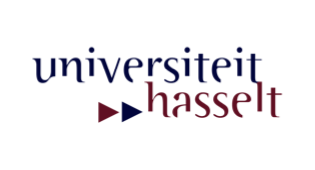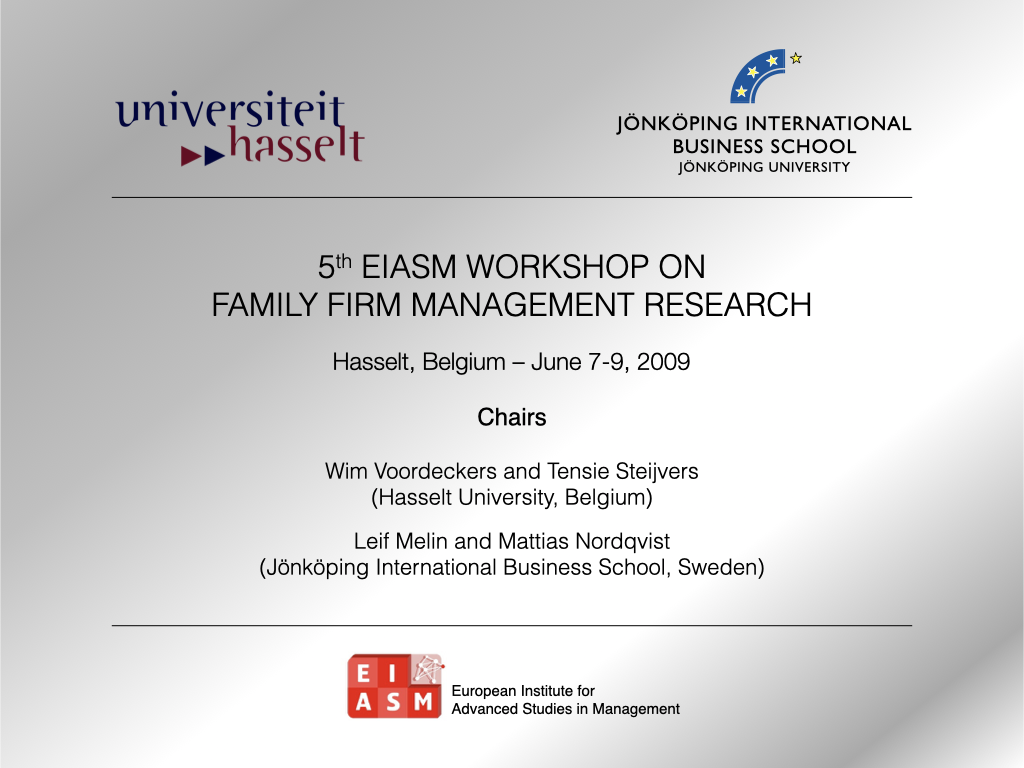5th EIASM Workshop on Family Firm Management Research
Hasselt, Belgium – June 7-9, 2009
Resources and Capabilities in Family Business
Chairs
Wim Voordeckers and Tensie Steijvers
KIZOK, Hasselt University, Belgium
Leif Melin and Mattias Nordqvist
CeFEO, Jönköping International Business School, Sweden
Keynote Speakers
Michael A. Hitt
Texas A&M University, USA
Carlo Salvato
Bocconi University, Italy

Co-organizer
Hasselt University, Belgium
Call for papers
“Family firms” are defined as family-owned or family managed firms. Only papers dealing with at least one of these populations are welcomed Four categories of research are of interest for the workshop:
- Conceptual and empirical research focusing on the special theme “Resources and capabilities in family business”. Research that combines the resource-based view of the firm (RBV) with family business issues are encouraged. Special attention is given to a) papers that apply, fit with and/or go beyond the RBV using family business contexts or b) papers that use the RBV to understand how specific forms of ‘capital’ (human capital, social capital, family capital, etc.) and their combinations can explain family firm’s performance, c) papers that fit with and/or go beyond the dynamic capabilities approach using family business contexts, and d) papers that explore the relations between dynamic capabilities in family firms and other variables such as knowledge, performance, entrepreneurship and culture.
- Literature reviews focusing on the family business field: state-of-the-art papers that allow discussing the knowledge already acquired and the main challenges to address in future research. Review papers can either a) focus on a main theme within the general family business field, such as corporate governance, strategic management, human resource management, corporate entrepreneurship, gender or professional management etc or b) focus on the relevance of a specific theory to the study of family firm, such as RBV, agency, social networks, resource dependence, institutionalism, critical management, culture or stewardship to only name a few.
- Papers that use the family firm context for contributing to the development of general management concepts and theories. Comparisons between family and non-family firms, but also between different types of family firms should belong to this category.
- Empirical research focusing on a topics specific to family firms. For instance:
- survival and performance over generations;
- financing and accounting issues in family firms.
- specific competitive advantages of family-firms;
- interactions between the family and the firm and their impact on management;
- governance, decision-making and strategizing processes at the top;
- succession of ownership and leadership.
Read more here.


